
Cerro Pero: The Hidden Gem of Paraguay
Nestled in the heart of Paraguay, Cerro Pero offers a unique blend of natural beauty and tranquility. This picturesque hill, located in the Paraguarí Department, is a must-visit for nature lovers and adventurers alike. The lush greenery and breathtaking views from the summit provide a perfect backdrop for a day of exploration and relaxation. The hike to the top of Cerro Pero is both challenging and rewarding, making it an ideal destination for those who enjoy outdoor activities. Along the way, you will encounter diverse flora and fauna, as well as stunning rock formations that add to the hill's charm. The trail is well-marked and accessible, catering to hikers of all skill levels. Once you reach the summit, you will be greeted by panoramic views of the surrounding landscape. On clear days, you can see for miles, taking in the beauty of Paraguay's rolling hills and verdant valleys. The serene atmosphere at the top makes it a perfect spot for a picnic or simply to unwind and soak in the natural splendor.
Local tips in Cerro Pero
- Bring plenty of water and snacks for the hike, as there are no facilities along the trail.
- Wear sturdy hiking shoes and comfortable clothing suitable for outdoor activities.
- Visit early in the morning to avoid the midday heat and enjoy a quieter experience.
- Check the weather forecast before planning your hike, as the trail can be slippery after rain.
- Don't forget your camera to capture the stunning views from the summit.
Cerro Pero: The Hidden Gem of Paraguay
Nestled in the heart of Paraguay, Cerro Pero offers a unique blend of natural beauty and tranquility. This picturesque hill, located in the Paraguarí Department, is a must-visit for nature lovers and adventurers alike. The lush greenery and breathtaking views from the summit provide a perfect backdrop for a day of exploration and relaxation. The hike to the top of Cerro Pero is both challenging and rewarding, making it an ideal destination for those who enjoy outdoor activities. Along the way, you will encounter diverse flora and fauna, as well as stunning rock formations that add to the hill's charm. The trail is well-marked and accessible, catering to hikers of all skill levels. Once you reach the summit, you will be greeted by panoramic views of the surrounding landscape. On clear days, you can see for miles, taking in the beauty of Paraguay's rolling hills and verdant valleys. The serene atmosphere at the top makes it a perfect spot for a picnic or simply to unwind and soak in the natural splendor.
When is the best time to go to Cerro Pero?
Iconic landmarks you can’t miss
Monday Falls
Experience the breathtaking beauty of Monday Falls, a natural paradise in Paraguay featuring stunning waterfalls and diverse wildlife.
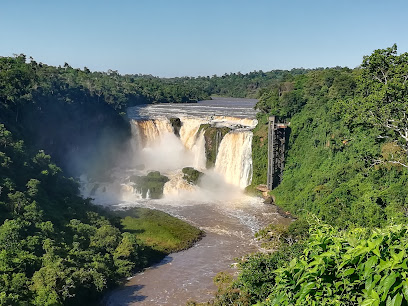
Cerro Perõ de Paraguarí. Park
Discover the stunning landscapes and rich biodiversity of Cerro Peró de Paraguarí Park, a natural paradise in Paraguay for nature lovers and adventurers.
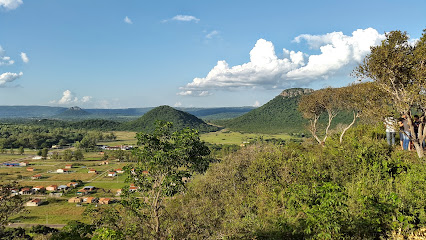
Mirador de Cerro Perõ, Paraguarí
Experience the stunning panoramic views of Paraguay at the Mirador de Cerro Perú, a must-visit observation deck in Paraguarí.
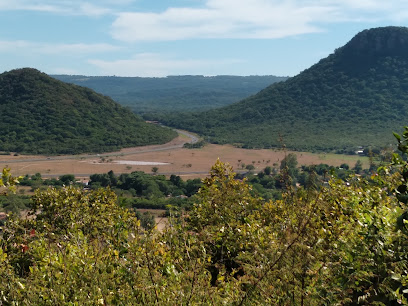
Cerro Tres Kandú
Explore the breathtaking landscapes and rich biodiversity of Cerro Tres Kandú, a top tourist attraction in Paraguay's stunning wilderness.
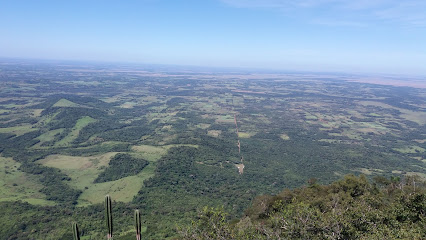
Salto Suizo
Explore the breathtaking landscapes, stunning waterfalls, and diverse wildlife of Salto Suizo, a must-visit national reserve in Paraguay.
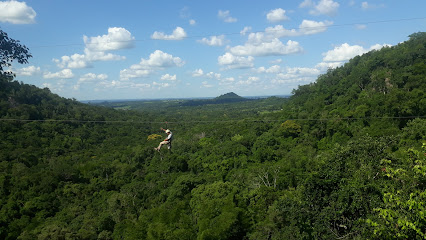
Mirador del Cerro Akati
Explore breathtaking views and savor authentic Paraguayan cuisine at Mirador del Cerro Akati, a must-visit destination in Independencia.
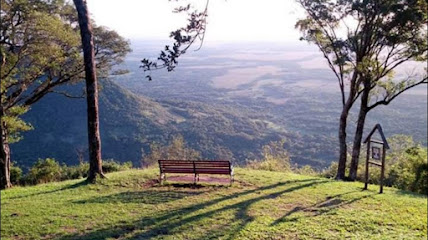
Cerro Kõi
Explore Cerro Kói, a breathtaking park in Areguá, Paraguay, offering stunning views, hiking trails, and a serene escape into nature.
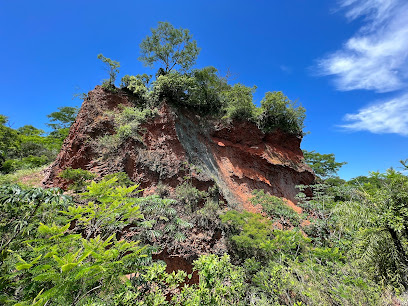
Cerro Lambaré
Experience the breathtaking views and serene beauty of Cerro Lambaré, a must-visit mountain peak in Asunción, Paraguay.
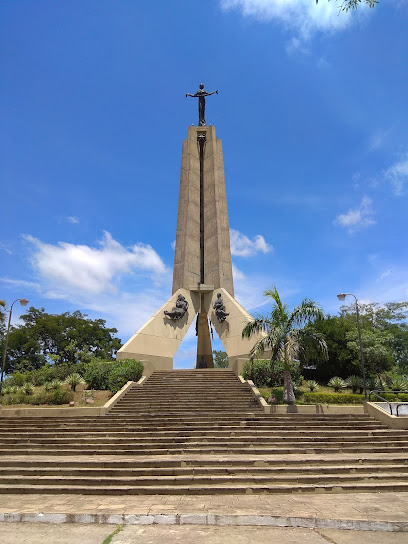
Cerro Peró
Discover the breathtaking beauty of Cerro Perú, a majestic mountain peak in Paraguay, perfect for hiking, photography, and serene nature escapes.
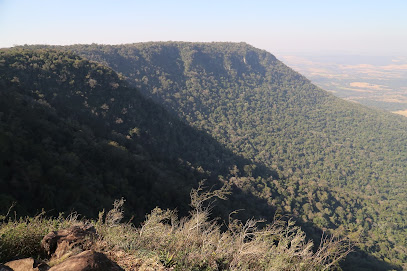
Cerro Vera Mirador, Acahay
Experience the breathtaking views of Cerro Vera Mirador, a serene escape showcasing the stunning landscapes of Acahay, Paraguay.
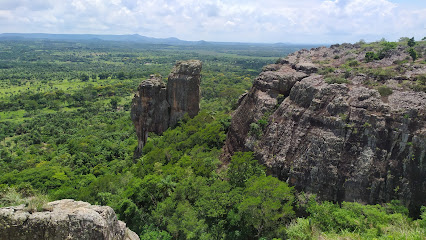
Cerro Muralla, Parque Nacional Cerro Corá
Explore the stunning views and rich biodiversity at Cerro Muralla, the ultimate observation deck in Parque Nacional Cerro Corá, Paraguay.
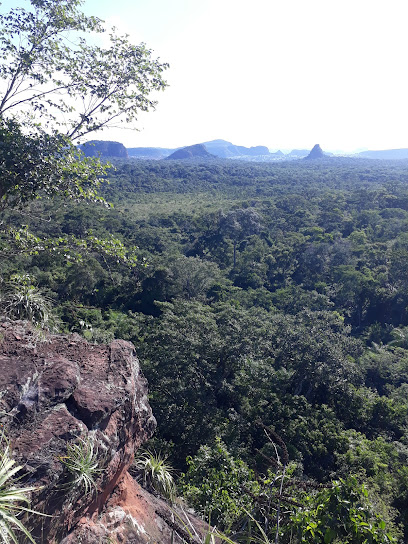
ENTRADA COMPLEJO TURÍSTICO CERRO PERÕ
Explore the serene beauty and stunning vistas at Cerro Peró, a must-visit scenic spot in Paso Yobái, Paraguay.
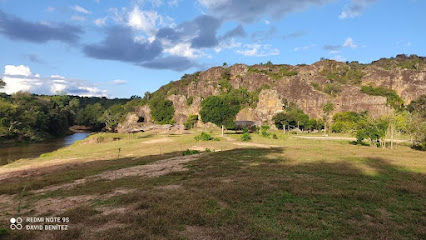
Cerro Piro'y
Discover the stunning beauty of Cerro Piro'y, an ideal hiking area in Paraguay for nature lovers and adventure seekers.
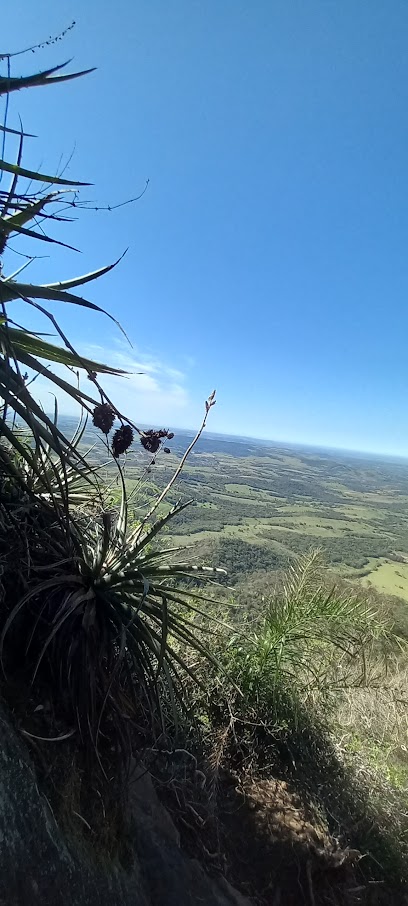
Unmissable attractions to see
Mirador de Cerro Perõ, Paraguarí
Experience the breathtaking panoramic views at Mirador de Cerro Peró, a must-visit observation deck in Paraguarí, Paraguay.
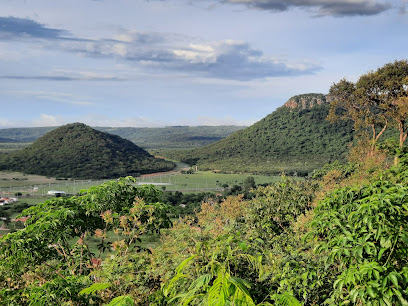
Inicio Del Sendero Al Tres Kandu
Discover the serene beauty of Inicio Del Sendero Al Tres Kandu, a nature preserve perfect for hiking, wildlife spotting, and tranquil escapes in Paraguay.
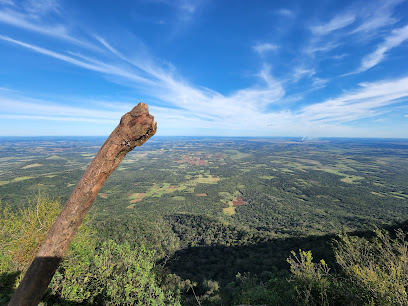
Cerro Pa’ũ
Discover the enchanting views at Cerro Pañú, a premier observation deck in La Colmena, Paraguay, perfect for nature lovers and photographers alike.
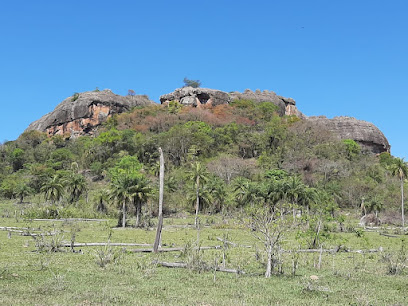
Cerro Amor, Colonia Independencia Guairá
Explore the majestic Cerro Amor in Colonia Independencia, Guairá - a scenic haven for nature lovers and cultural explorers alike.
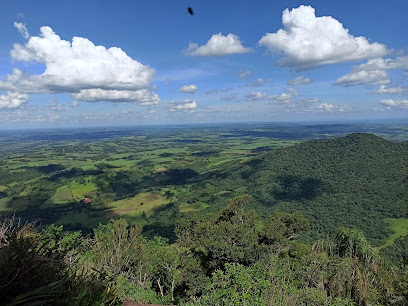
Cerro 3 Kandú
Experience the breathtaking views and lush landscapes at Cerro 3 Kandú, Paraguay's highest point, ideal for nature lovers and adventurers alike.
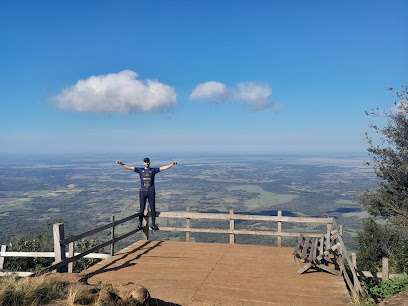
Cerro Corá, san Pablo
Explore the natural beauty and rich history of Cerro Corá, a breathtaking tourist attraction in Paraguay perfect for nature lovers and adventure seekers.
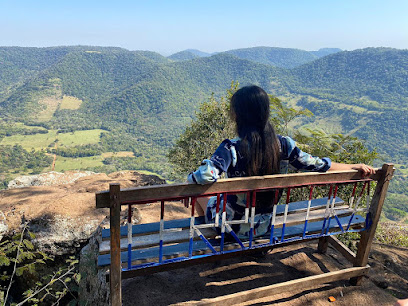
El Arbol Del Amor Mirador Cerro Corá
Discover the breathtaking beauty and tranquility of El Arbol Del Amor Mirador, a must-visit viewpoint in Cerro Corá National Park, Paraguay.
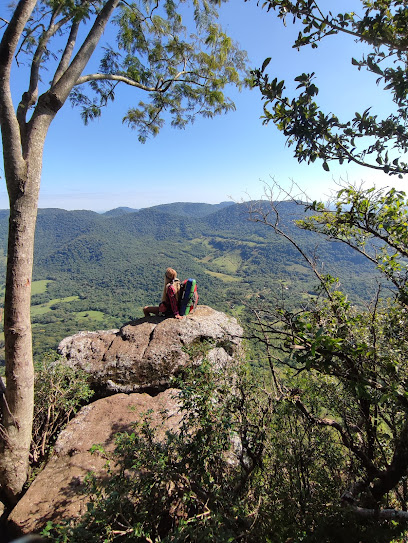
Cerro Capi'i, Mirador 3 Kandu
Experience breathtaking views and serene nature at Cerro Capi'i, Mirador 3 Kandu, a must-visit tourist attraction in Paraguay.
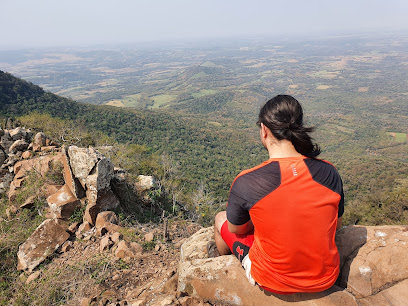
Lugar De Descanso
Experience the tranquil beauty of Lugar De Descanso, a serene tourist attraction in San Pedro del Ycuamandiyú, Paraguay.
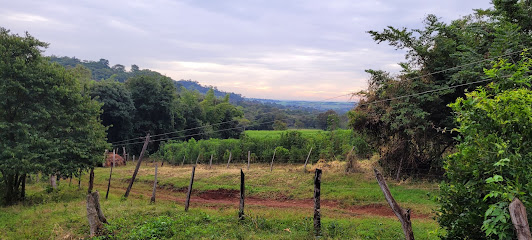
Cerro Piro'y
Discover the breathtaking trails and wildlife at Cerro Piro'y, a premier hiking destination in General Eugenio Alejandrino Garay, Paraguay.
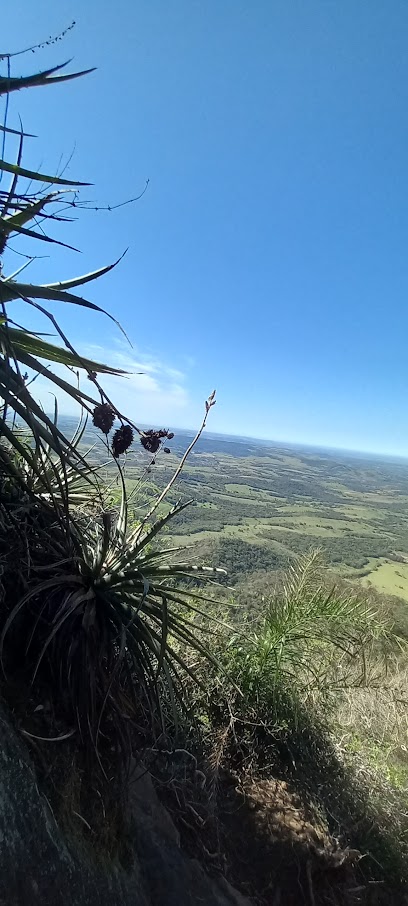
Desvío al mirador cerro de la cruz
Discover the stunning vistas from Cerro de la Cruz in Paraguay, a must-visit tourist attraction for breathtaking views and serene nature experiences.
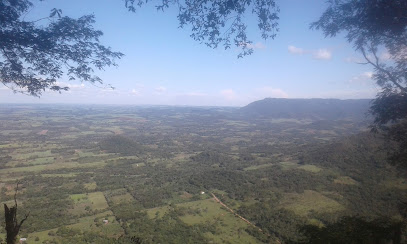
Mirador Mainumby
Experience breathtaking views and serene nature at Mirador Mainumby, a must-visit tourist attraction in the heart of Paraguay.

Mirador 3 Kandú (2)
Explore the stunning Mirador 3 Kandú in Colonia Guarani, Paraguay, a breathtaking hiking area perfect for nature lovers and outdoor enthusiasts.

Jardines del yvyturuzu
Explore the stunning Jardines del Yvyturuzu in Potrerito, Paraguay - a tranquil oasis of exotic plants and vibrant flowers, perfect for nature lovers.

Arroyo guasu
Explore the tranquil beauty of Arroyo Guasu, a serene riverside attraction in San Gervacio, Paraguay, perfect for nature lovers and relaxation seekers.

Essential places to dine
Camping Tacuara
Camping Tacuara: A unique blend of nature, delicious cuisine, and recreational fun in Melgarejo's stunning landscapes.
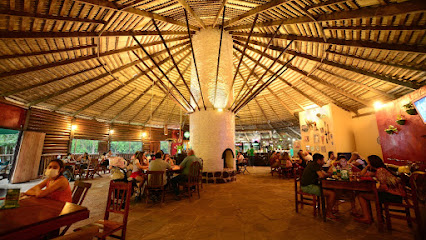
TUSS Restaurant & Fast Food
Discover the vibrant flavors of TUSS Restaurant & Fast Food in Villarrica – where delicious food meets exceptional service.
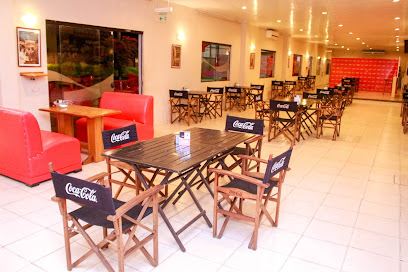
Patio Gua'i
Savor authentic Paraguayan cuisine at Patio Gua'i in Villarrica—where delightful flavors meet a cozy atmosphere.
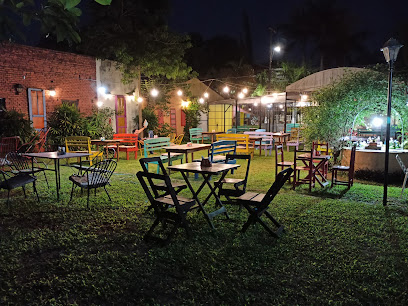
El Cortijo
Discover culinary excellence at El Cortijo in Villarrica - where local flavors meet international flair in a warm and welcoming setting.
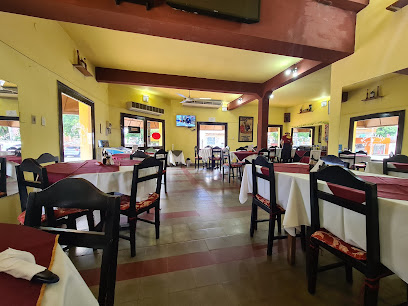
Segreti di Gua'i
Experience authentic Paraguayan cuisine at Segreti di Gua'i in Villarrica—where every meal is a celebration of flavor and culture.
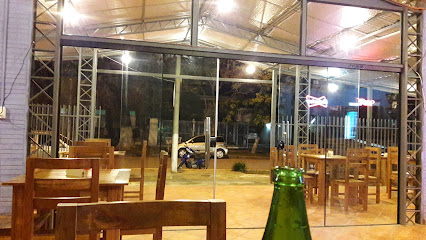
Che Roga
Experience the authentic taste of Paraguay at Che Roga in Independencia, where culinary tradition meets warm hospitality.
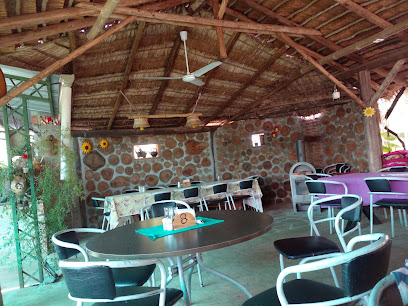
Distrito | La mansión
Experience the best of Paraguayan cuisine at Distrito | La mansión in Villarrica – where flavor meets tradition in a warm atmosphere.
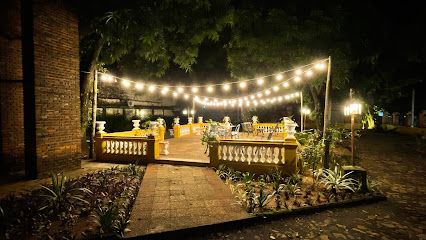
Mariscal Resto Bar
Discover Mariscal Resto Bar: A culinary gem offering delicious grilled dishes in the vibrant heart of Paraguay's Mariscal José Félix Estigarribia.
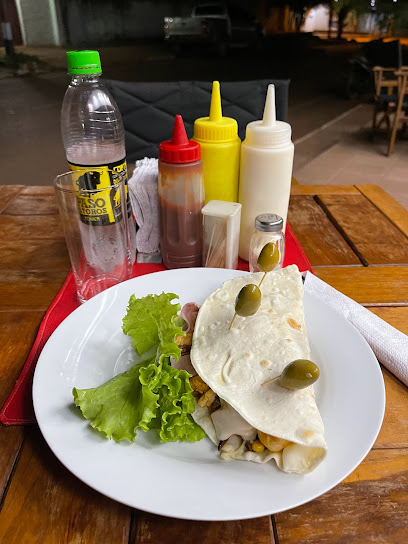
Restaurant Noemi
Discover authentic Paraguayan cuisine at Restaurant Noemi in Villarrica - where tradition meets flavor in every bite.
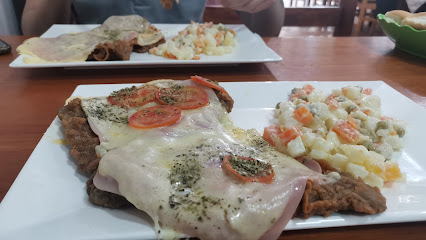
Karu Porã
Discover authentic Paraguayan cuisine at Karu Porã in Villarrica – delicious food at affordable prices in a warm and inviting atmosphere.
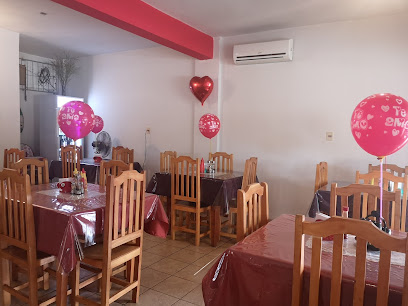
Der Bier Garten El Jardin de la Cerveza
Experience family-friendly dining at Der Bier Garten El Jardin de la Cerveza in Mbocayaty—where delicious food meets vibrant atmosphere.
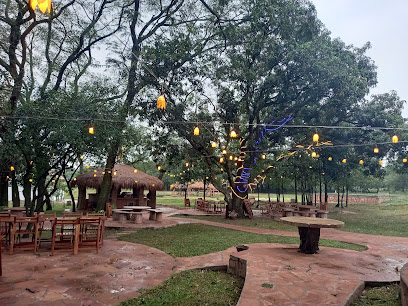
Pan y Circo
Experience vibrant flavors and local charm at Pan y Circo in Villarrica, Paraguay - a culinary gem not to be missed.
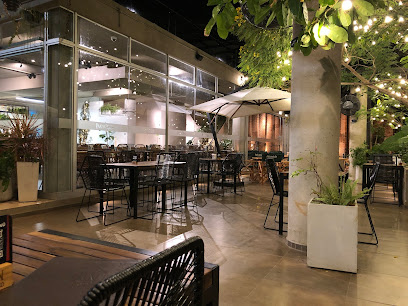
Centro de las Pizzas
Discover the irresistible flavors of authentic Paraguayan pizza at Centro de las Pizzas in Melgarejo.
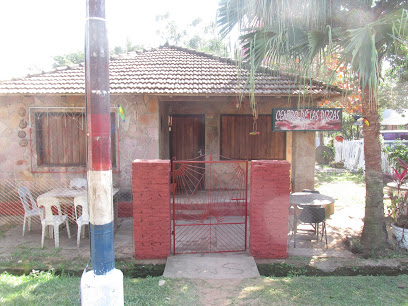
Rancho Don Juan ( cepi )
Experience unparalleled comfort and local charm at Rancho Don Juan in Independencia – your perfect getaway in Paraguay.
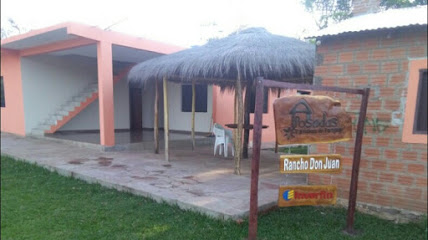
Restaurante Freiburg
Discover the flavors of Paraguay at Restaurante Freiburg – home to the best omelet in town and a delightful dining atmosphere.
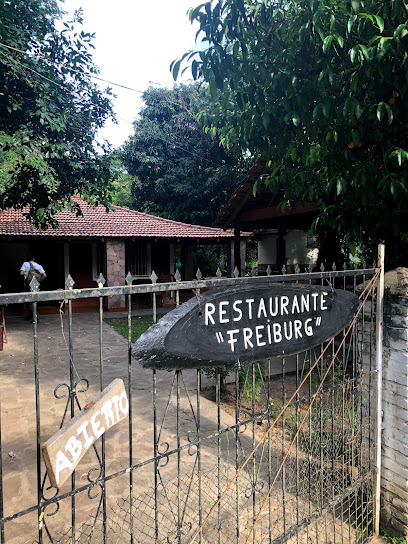
Markets, malls and hidden boutiques
Almacén San Blás
Experience the vibrant local culture at Almacén San Blás, a shopping mall in Gral Eugenio Alejandrino Garay with unique shops and delightful dining options.

Comercial Otazu
Discover the vibrant shopping experience at Comercial Otazu, where local culture meets modern retail in José Fassardi, Paraguay.
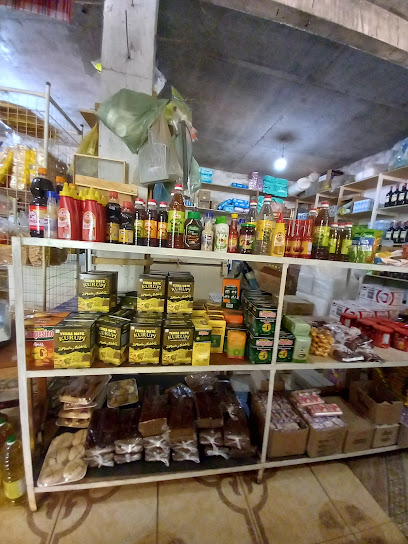
Destino Tres kandu
Explore local flavors and unique products at Destino Tres Kandu, a vibrant grocery store in Paraguay offering a culinary adventure for visitors.
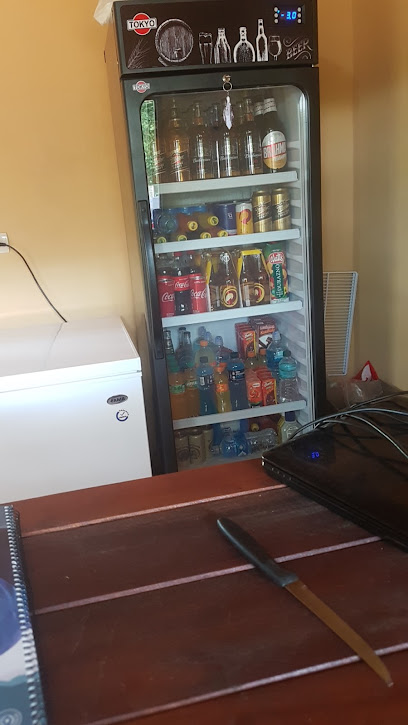
Super Sol
Explore Super Sol in San Pablo - your destination for local products, fresh produce, and an authentic Paraguayan shopping experience.

Dylan CELL
Explore Dylan CELL in José A. Fassardi - your ultimate shopping destination for local craftsmanship and global brands.

Hielo en cubito
Discover the vibrant shopping experience at Hielo en Cubito, where local culture meets international brands in Gral Eugenio Alejandrino Garay.
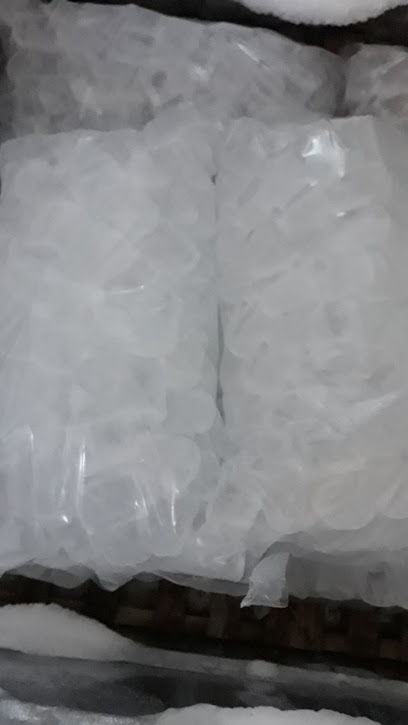
FAMAR CREACIONES
Discover the charm of FAMAR CREACIONES, a gift shop in Independencia, Paraguay, offering unique artisanal products and memorable souvenirs.
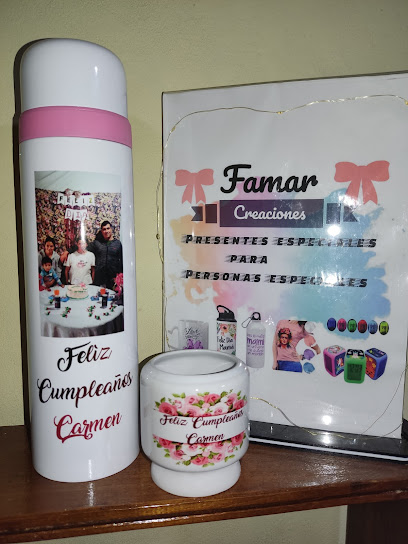
Despensa la mariposa
Discover local flavors and authentic Paraguayan goods at Despensa la Mariposa in Kaguare'I – a vibrant store that captures the essence of the region.

PUNTO DE ELEGANCIA A & N... ALQUILERES NOVEDADES, CALZADOS, ANEXO BODEGA SHOP Y HOSPEDAJE.
Explore the stylish selection at Punto de Elegancia A & N, a top shopping destination in San Pablo de Ycuámandyyú for trendy footwear and unique novelties.
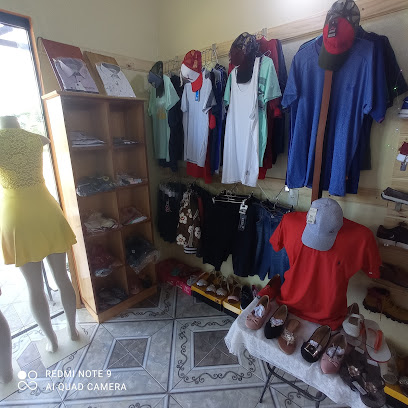
G&G Store
Discover unique Paraguayan gifts and handicrafts at G&G Store, your go-to destination in Paso Yobai for memorable souvenirs.
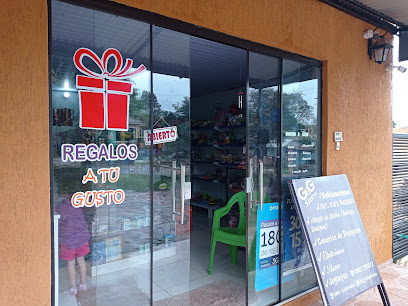
Novedades ARIELITO
Explore Novedades ARIELITO in Numi for a unique blend of local and contemporary fashion that captures the spirit of Paraguay.

Mar ofertas
Discover the essence of Paraguayan fashion at Mar Ofertas, a trendy clothing store in José Fassardi perfect for tourists seeking unique styles.

Tienda Rosabi Roperia y Art. para regalos
Explore Tienda Rosabi, a unique gift shop in Gral Eugenio Alejandrino Garay offering local crafts and souvenirs that capture the essence of Paraguay.

Casa San Jose
Discover the heart of Paraguay at Casa San Jose, where local craftsmanship meets a warm shopping experience in José Fassardi.
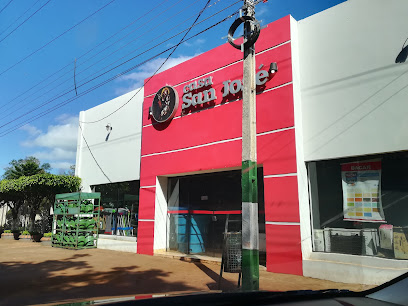
Comercial Chelo
Discover Comercial Chelo: A vibrant shopping mall in San Gervacio, offering diverse shops, delightful dining, and engaging entertainment for all.

Essential bars & hidden hideouts
RD Tembi'u Pya'e
Experience the vibrant flavors of Paraguayan cuisine at RD Tembi'u Pya'e, a grill restaurant in Paso Yobái known for its delicious grilled dishes and local charm.
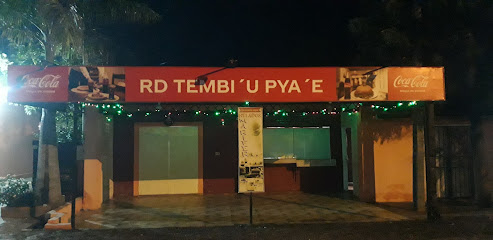
Pinky Floyd Bar
Discover the lively Pinky Floyd Bar in Melgarejo, where delicious food and vibrant nightlife come together for an unforgettable experience.
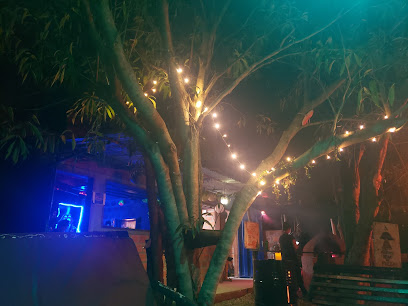
Ruchi Bar
Discover Ruchi Bar, the vibrant local hotspot in Gral Eugenio Alejandrino Garay, where delightful drinks and a lively atmosphere await!
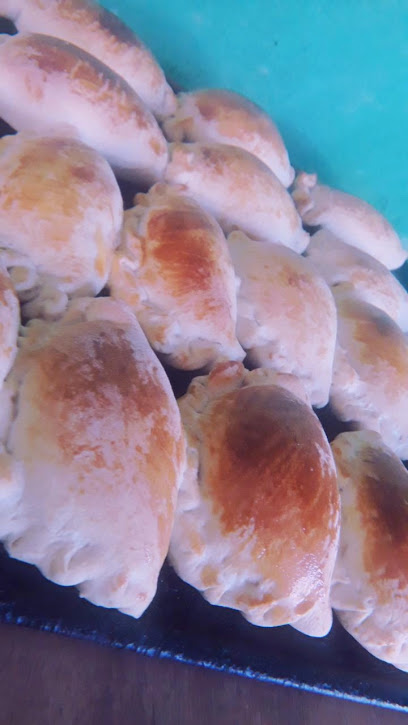
Laura Barrios Bar Bodega Karaoke
Unleash your inner superstar at Laura Barrios Bar Bodega Karaoke, the ultimate destination for vibrant nightlife and unforgettable musical moments in Numi.
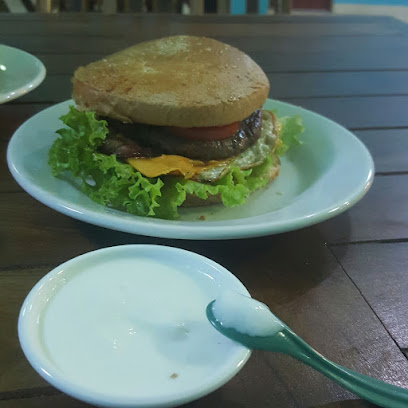
Bodega La Palmera
Experience the vibrant nightlife at Bodega La Palmera, a cozy bar offering a delightful selection of drinks and local ambiance.
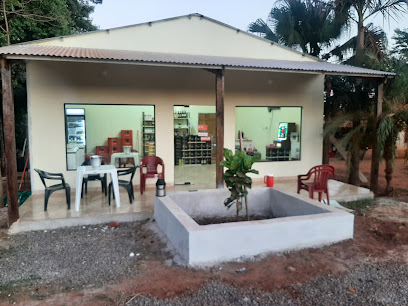
Ale Bodega
Discover the vibrant atmosphere and exquisite local flavors at Ale Bodega, the must-visit bar in José Fassardi for tourists seeking authentic experiences.
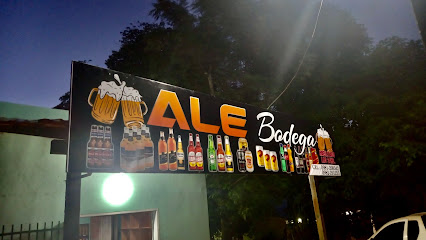
Bodega El Kakote
Experience the vibrant nightlife and authentic flavors of Paraguay at Bodega El Kakote, a local bar brimming with culture and community.
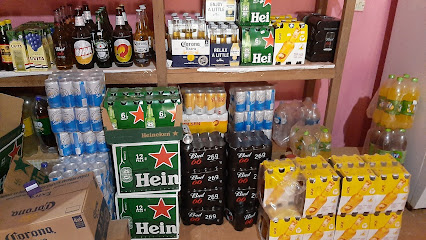
Alanny resto bar
Experience the lively ambiance and exceptional drinks at Alanny Resto Bar in José Fassardi, a must-visit destination for all travelers.

PARADOR ENCA
Experience the vibrant atmosphere and local flavors at Parador Enca, a must-visit bar in José Fassardi, Paraguay.
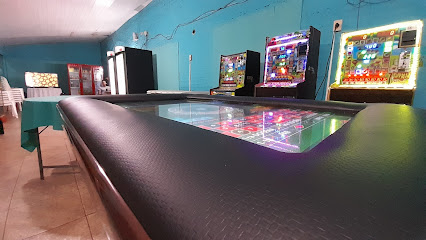
Parador La Casita
Experience the cozy charm of Parador La Casita in Paso Yobái, a perfect bar for relaxation and local culture.
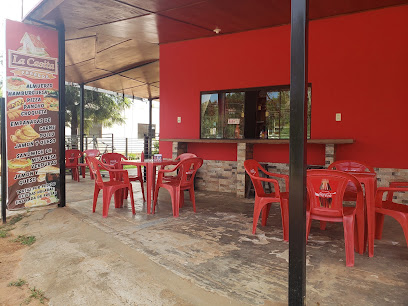
Ñande Bar
Experience the best of grilled delights and fine wines at Ñande Bar, a culinary treasure in Doctor Botrell, Paraguay.

Motivos Tragos y Comidas
Discover the vibrant nightlife of Abaí at Motivos Tragos y Comidas, a bar offering local flavors and a lively atmosphere perfect for tourists.
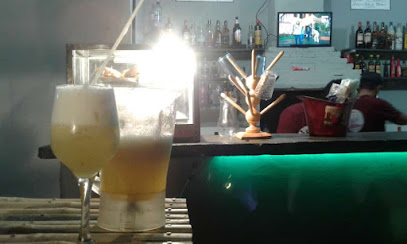
BAR COMEDOR ALE
Experience the vibrant atmosphere and authentic flavors of Paraguay at Bar Comedor Ale in Numi, a beloved local bar and restaurant.

Bodega RODRIGO
Discover the vibrant nightlife and cultural essence of Paraguay at Bodega RODRIGO, a lively bar offering delightful drinks and a welcoming atmosphere.
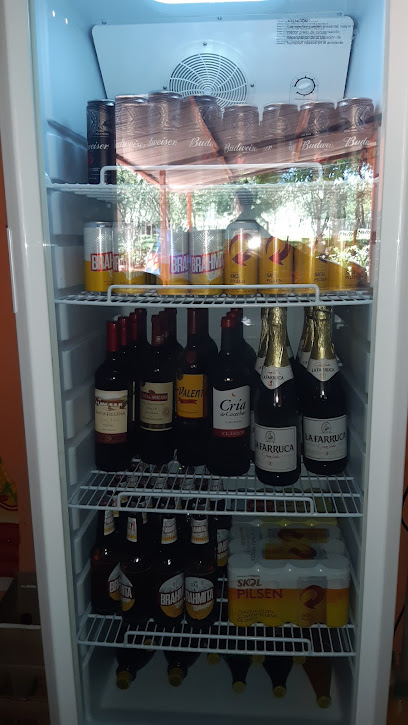
Bar karaoke y Lomiteria Monte Verde
Experience the vibrant nightlife of Numi at Bar Karaoke y Lomiteria Monte Verde, where music, drinks, and delicious food come together.

Local Phrases about Cerro Pero
-
- HelloMba'éichapa
[m-ba-eh-ee-cha-pa] - GoodbyeJa'u
[ja-u] - YesHa
[ha] - NoNdaipóri
[nda-ee-poh-ree] - Please/You're welcomePora favor
[po-ra fa-vor] - Thank youAguyje
[a-goo-yeh] - Excuse me/SorryÑandejára
[nyaan-de-ja-ra] - How are you?Mba'éichapa
[m-ba-eh-ee-cha-pa] - Fine. And you?Ha peteï
[ha peh-teh-ee] - Do you speak English?Añe'érape inglés-pe?
[an-ye-eh-ra-pe een-gles-pe] - I don't understandNdaipóri oñe'ê
[nda-ee-poh-ree oh-neh-eh]
- HelloMba'éichapa
-
- I'd like to see the menu, pleaseChe reta vy'ahára, pora favor
[che reh-ta vee-ah-ha-ra po-ra fa-vor] - I don't eat meatNdaiporive mba'emo
[nda-ee-poh-ree-veh mba-eh-moh] - Cheers!Kanpai!
[kan-pai] - I would like to pay, pleaseChe reta mbo'ehao, pora favor
[che reh-ta mbo-eh-ha-o po-ra fa-vor]
- I'd like to see the menu, pleaseChe reta vy'ahára, pora favor
-
- Help!Ñe'ẽ!
[nye-eh] - Go away!Jaháichapa!
[ja-ha-ee-cha-pa] - Call the Police!Policía-ro ñemombe'ú!
[po-lee-see-a-ro nye-mom-be-oo] - Call a doctor!Mbareté-ro ñemombe'ú!
[mba-re-te-ro nye-mom-be-oo] - I'm lostAñembo'ehári
[an-em-bo-eh-ha-ree] - I'm illAñembo'eharakuérape
[an-em-bo-eh-ha-ru-eh-ra-pe]
- Help!Ñe'ẽ!
-
- I'd like to buy...Che reta mba'épa...
[che reh-ta mba-eh-pa] - I'm just lookingNde rire
[nde ree-reh] - How much is it?Piko mba'épa?
[pee-ko mba-eh-pa] - That's too expensiveOikói hese
[oy-koy heh-seh] - Can you lower the price?Mba'éichapa piko jeporúva?
[m-ba-eh-ee-cha-pa pee-ko heh-po-ru-va]
- I'd like to buy...Che reta mba'épa...
-
- What time is it?Ha'e peteî nde tiempo?
[ha-eh peh-teh-ee nde tee-em-po] - It's one o'clockIpurúva peteî
[ee-poo-roo-va peh-teh-ee] - Half past (10)Ikatu pyhare (10)
[ee-ka-too pee-ha-reh (10)] - MorningAña
[an-ya] - AfternoonTarde
[tar-deh] - EveningJahápe
[ja-ha-peh] - YesterdayJahápe oikovevẽ
[ja-ha-peh oy-ko-veh-ve] - TodayÑane
[nya-ne] - TomorrowÑande
[nyan-de] - 1Peteĩ
[peh-teh-ee] - 2Mokoĩ
[mo-koh-ee] - 3Mbose
[mbo-seh] - 4Ivai
[ee-va-ee] - 5Ikoru
[ee-ko-roo] - 6Takuára
[ta-kwa-ra] - 7Guasú
[gwa-soo] - 8Jagua
[ja-gwa] - 9Ikatu
[ee-ka-too] - 10Peteĩ
[peh-teh-ee]
- What time is it?Ha'e peteî nde tiempo?
-
- Where's a/the...?Ko'ã...?
[ko-ah] - What's the address?Ko'ã mba'épa ñe'ẽme?
[ko-ah mba-eh-pa nye-eh-me] - Can you show me (on the map)?Mba'epa ndive (mapa-pe)?
[mba-eh-pa ndee-veh mah-pa-pe] - When's the next (bus)?Peteî ñemombyry ojapo (ómnibus)?
[peh-teh-ee nye-mom-byr-ee o-ha-po ohm-nee-boos] - A ticket (to ....)Peteî tikétera (ka...)?
[peh-teh-ee tee-keh-teh-ra ka]
- Where's a/the...?Ko'ã...?
History of Cerro Pero
-
Before the arrival of Europeans, the area around Cerro Pero was inhabited by various indigenous tribes, primarily the Guarani people. They lived in harmony with nature, utilizing the land for agriculture and hunting. The region was rich in biodiversity, providing ample resources for the indigenous communities.
-
In the early 16th century, Spanish explorers arrived in what is now Paraguay. The region around Cerro Pero saw the establishment of early settlements as the Spanish sought to consolidate their control over the territory. These settlements often led to conflicts with the indigenous population, resulting in a complex tapestry of cultural exchanges and clashes.
-
During the 17th and 18th centuries, Jesuit missionaries established missions around Cerro Pero as part of their efforts to evangelize the indigenous peoples. These missions became centers of cultural and educational development, blending European and indigenous traditions. The Jesuits introduced new agricultural techniques and crops, which had a lasting impact on the region's economy.
-
The Paraguayan War, also known as the War of the Triple Alliance, was a significant conflict that impacted the region around Cerro Pero. Paraguay faced off against the allied forces of Argentina, Brazil, and Uruguay. The war led to widespread devastation, drastically reducing the population and affecting the social and economic fabric of the area. Many historical sites around Cerro Pero still bear the scars of this tumultuous period.
-
The 20th century brought modernization and development to Cerro Pero and its surrounding areas. Infrastructure improvements, such as roads and communication networks, facilitated greater connectivity and economic growth. Efforts to preserve the region's cultural heritage also gained momentum, leading to the establishment of museums and cultural centers that celebrate Cerro Pero's rich history.
-
Cerro Pero is known for its vibrant cultural festivals that draw visitors from all over Paraguay and beyond. These festivals often feature traditional music, dance, and cuisine, providing a window into the area's rich cultural heritage. Celebrations such as the annual Guarani Festival highlight the enduring influence of indigenous traditions, while other events commemorate historical milestones and local legends.
-
Today, Cerro Pero is a blend of historical richness and modern development. It is a popular destination for tourists seeking to explore its natural beauty and historical sites. Efforts to promote sustainable tourism ensure that the area's cultural and natural heritage is preserved for future generations. Visitors can enjoy guided tours, hiking trails, and cultural experiences that offer a deep dive into the history and culture of Cerro Pero.
Cerro Pero Essentials
-
Cerro Pero, located in the Paraguarí Department of Paraguay, is accessible primarily by road. The nearest major city is Asunción, the capital of Paraguay, which is approximately 100 kilometers away. From Asunción, you can take a bus from the main bus terminal (Terminal de Ómnibus de Asunción) to Paraguarí, which is the nearest town to Cerro Pero. The bus journey typically takes around 2 hours. Alternatively, you can rent a car and drive, which offers more flexibility and the opportunity to explore the scenic countryside.
-
Once in Paraguarí, you can hire a taxi or use local buses to reach Cerro Pero. Taxis are available and reasonably priced. For those who enjoy hiking, there are well-marked trails leading up to Cerro Pero. Renting a bicycle or hiring a local guide are also popular options for exploring the area. Public transportation within the region is limited but functional, with buses connecting major towns and villages.
-
The official currency in Paraguay is the Paraguayan Guarani (PYG). Credit cards are accepted in most hotels, restaurants, and larger shops in Paraguarí, but it is advisable to carry cash, especially when visiting smaller establishments or rural areas. ATMs are available in Paraguarí, but it is wise to withdraw sufficient cash in Asunción before traveling to ensure you have enough funds for your trip.
-
Cerro Pero and the surrounding areas are generally safe for tourists. However, like any travel destination, it is advisable to take standard precautions. Avoid walking alone at night in unfamiliar areas and keep an eye on your belongings in crowded places. There are no specific high-crime areas targeting tourists in Paraguarí, but always stay vigilant and aware of your surroundings.
-
In case of emergency, dial 911 for immediate assistance. The local police station and medical facilities are available in Paraguarí. It is recommended to have travel insurance that covers medical emergencies. For minor health issues, there are pharmacies in the town where you can purchase over-the-counter medications. Familiarize yourself with the location of the nearest hospital or clinic.
-
Fashion: Do dress modestly, especially when visiting religious sites or rural areas. Avoid wearing revealing clothing. Religion: Do respect local customs and traditions. Always behave respectfully in religious settings. Public Transport: Do be courteous and give up your seat to elderly passengers. Don't eat or drink on public transport. Greetings: Do greet people with a handshake and a smile. A slight nod of the head is also a sign of respect. Eating & Drinking: Do try local delicacies and accept food offerings graciously. Don't refuse hospitality, as it is considered impolite.
-
To experience Cerro Pero like a local, visit the local markets in Paraguarí where you can buy fresh produce and traditional Paraguayan goods. Engage with locals, as they are often friendly and willing to share stories about the area's history and culture. Don't miss the opportunity to hike to the top of Cerro Pero, which offers stunning panoramic views of the surrounding landscape. For a unique experience, participate in local festivals and events, which provide insight into the region's traditions and way of life.
Trending Landmarks in Cerro Pero
Nearby Cities to Cerro Pero
-
Things To Do in Ypacarai
-
Things To Do in San Bernardino
-
Things To Do in Aregua
-
Things To Do in Carmen del Parana
-
Things To Do in Asuncion
-
Things To Do in Hernandarias
-
Things To Do in Puerto Iguazú
-
Things To Do in Encarnacion
-
Things To Do in Foz do Iguaçu
-
Things To Do in Tacuarembó
-
Things To Do in Florianópolis
-
Things To Do in Fray Bentos
-
Things To Do in Rosario
-
Things To Do in San Miguel de Tucumán
-
Things To Do in Salta







